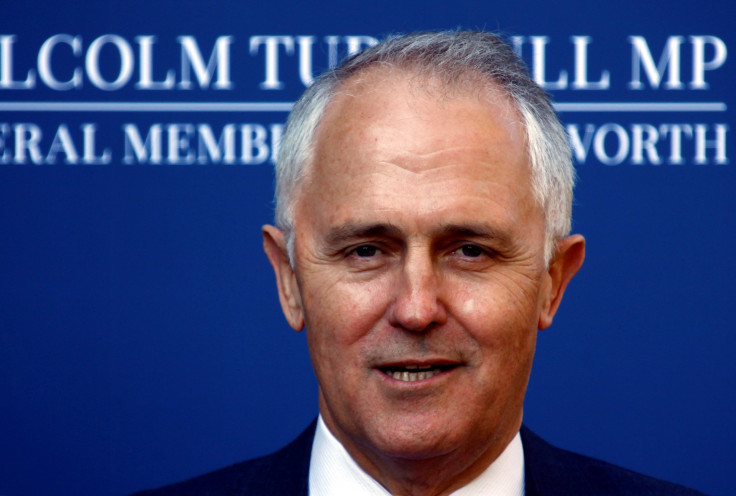Australian leaders react to new Prime Minister Malcolm Turnbull

Australia’s new prime minister, Malcolm Turnbull, who won the Liberal Party Leadership vote with 54 votes to Tony Abbott’s 44, has drawn myriad of reactions from people belonging to different social strata. The change in the leadership amid internal complications is at the helm of political speculations, on which the country’s future depends.
Former Prime Minister Julia Gillard took to Twitter to congratulate the new prime minister of Australia. “Congratulations to Malcolm Turnbull on becoming Prime Minister - a great honour and responsibility,” she wrote.
Kevin Rudd, who held the office twice, also wished Turnbull good luck on his new journey as the leader of his party as well as the leader of the fast growing nation. “Best wishes to Malcolm Turnbull becoming Australia's 29th Prime Minister Huge job with huge challenges.Therese and I wish he and Lucy well,” Rudd wrote on his Twitter page.
Opposition leader Bill Shorten has pointed out that changing the prime minister within the liberal party would not make much of a difference. “Australia doesn’t need another Liberal Leader - we need a change of Government, and Labor’s up for the fight,” he wrote on Twitter. “Australians know that with Malcolm, it will always be about Malcolm.”
After a long silence which kept the nation waiting through impatiently, Abbott delivered his last speech as the Prime Minister of Australia on Tuesday.
“There’ll by no wrecking, no undermining, and no sniping. Our country deserves better,” he said while addressing the nation. “I want our country and our government to succeed. I always have and always will.”
Foreign Minister Julie Bishop told “Today” host Karl Stefanovic that the decision to vote against Abbott was not an easy one. "I was deeply concerned at the despair within the party room," she said. "I was concerned by the fact that the prime minister had asked for six months to turn things around and that had not occurred. I feel very sad for Tony and his family and it was not an easy decision for anyone to make."
In 2009, Turnbull had lost out on party leadership for supporting a then-Labor party government proposal, which required the industrial polluters to pay for carbon gas emissions that were produced by them under an emissions permit trading scheme.
The coalition government under Abbott, on the other hand, revoked a carbon-tax that was in effect for two years and introduced a policy of paying industrial polluters a taxpayer-funded incentive of AU$2.55 billion to encourage them to function more appropriately and cleanly.
Though Turnbull refrained from revealing any possibility of changes in the other existing policy structures, he ensured that his style of policy making is rather collaborative. Unlike Abbott, Turnbull is in favour of gay marriages and has suggested a Parliament vote for its legalisation prior to the elections around September next year.
However, what might be regarded as victory for Turnbull is still not free from danger. A no confidence motion by the Labor can lead to a total failure for the Liberals. But the newest development will also make way for a cabinet reshuffle, which might not be favourable for ministers like Joe Hockey and Kevin Andrews who openly supported Abbott.
A Liberal Party leadership vote resulted in the ousting of Tony Abbott as the Prime Minister of Australia and declared Malcolm Turnbull, who had been Communications Minister under the Abbott government, as Australia’s next prime minister on Monday. Malcolm is expected be sworn in after Abbott writes to the Governor General and tenders his resignation. He will be Australia’s fourth prime minister in 2 years after he is sworn in.
Contact the writer at feedback@ibtimes.com.au, or let us know what you think below.





















